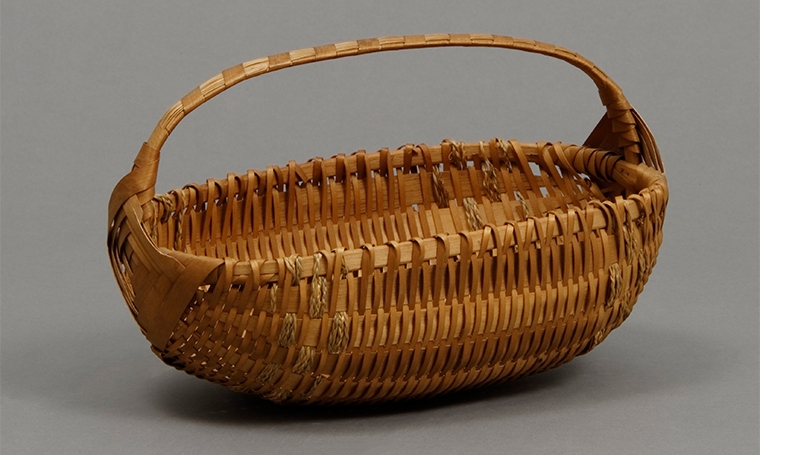This Thanksgiving, we invite you to join us in listening, watching, and reading about this holiday's untold histories while engaging with creative expressions by Native scholars, activists, educators, and artists.
This year, Thanksgiving looks different for people across the country. Many of us will be spending time away from our loved ones or having quieter and smaller gatherings than we normally would. For many Native Americans, Thanksgiving has always been a holiday that evokes feelings of ambiguity. Like many of our fellow Americans, we enjoy gathering with our families and communities. Although we can't speak for all Native peoples, we certainly love opportunities to eat delicious foods as well. Still, for some Native Americans, Thanksgiving also serves as a reminder of the complex history of colonization and the ongoing struggles for self-determination and sovereignty. Therefore, on this already strange Thanksgiving, we invite you to lean into the weirdness and join us in listening, watching, and reading about this holiday's untold histories while engaging with creative expressions by Native scholars, activists, educators, and artists.
Before exploring the links below, please take a moment to visit the National Day of Mourning website created by the United American Indians of New England (UAINE) and read Wamsutta James's (Wampanoag) 1970 "Suppressed Speech." Both of these resources center the voices of Wampanoag community members, on whom the myth of the "first Thanksgiving" is based.
Podcasts:
"ThanksTaking or ThanksGiving?," All My Relations Podcast, November 20, 2020
"The Native Foods of Thanksgiving," Up to Date, November 19, 2020
"Episode 642: The Sioux Chef," The Splendid Table, November 3, 2017
"Thanksgiving: What it Means for Native Americans," The Takeaway, November 24, 2014
Articles:
Olivia B. Waxman, "400 Years After the 'First Thanksgiving,' the Tribe Who Fed the Pilgrims Continues to Fight for Their Land Amid Another Epidemic," Time, November 23, 2020
Philip J. Deloria, "The Invention of Thanksgiving: Massacres, Myths, and the Making of the Great November Holiday," The New Yorker, November 18, 2019
Dennis Zotigh, "Do American Indians Celebrate Thanksgiving?" Smithsonian Magazine, Smithsonian Voices, National Museum of the American Indian, November 26, 2019
David J. Silverman, "In 1621, the Wampanoag Tribe Had Its Own Agenda: In American lore, friendly Indians Helped Freedom-Loving Colonists. In Real Life, the Wampanoags Had a Problem They Didn't Know How to Fix," The Atlantic, Ideas, November 27, 2019
Lindsay McVay, "Everyone's History Matters: The Wampanoag Indian Thanksgiving Story Deserves to Be Known," Smithsonian Magazine, Smithsonian Voices, National Museum of the American Indian, November 22, 2017
Matt Juul, "National Day of Mourning Reflects on Thanksgiving's Horrific, Bloody History," Boston Globe, November 26, 2014
Michelle Tirado, "The Wampanoag Side of the First Thanksgiving Story," Indian Country Today, November 23, 2011
James E. McWilliams, "They Held Their Noses, and Ate," New York Times, op-ed, November 24, 2005:
Videos:
Martha's Vineyard Museum, "This Land Is Their Land: A Conversation with David Silverman and David Vanderhoop," November 19, 2020
Paul Chaat Smith on "The Invention of Thanksgiving," from The Americans, Smithsonian National Museum of the American Indian, 2018
PBS Newshour, "How Teachers Are Debunking Some of the Myths of Thanksgiving," November 20, 2018
Linda Coombs (Aquinnah Wampanoag), former director of Wampanoag education program at Plimoth Plantation, "First Thanksgiving," at Boston City Hall, November 24, 2010
Books:
David J. Silverman, This Land Is Their Land: The Wampanoag Indians, Plymouth Colony, and the Troubled History of Thanksgiving, 2019
Lisa Blee and Jean M. O'Brien, Monumental Mobility: The Memory Work of Massasoit, 2019
For something a bit different, check out Stephen Graham Jones's recently released novel The Only Good Indians (2020). Set around Thanksgiving time, The Only Good Indians blends classic horror and dramatic narrative with biting social commentary. There's also a great interview with the author from science fiction and fantasy publication Lightspeed, if you'd like to learn more.
Resource list compiled in collaboration with Melanie Benson Taylor (Herring-Pond Wampanoag), Professor of Native American Studies
Jami Powell, Associate Curator of Native American Art
Taylor Rose Payer, Cultural Heritage and Indigenous Knowledges Fellow
